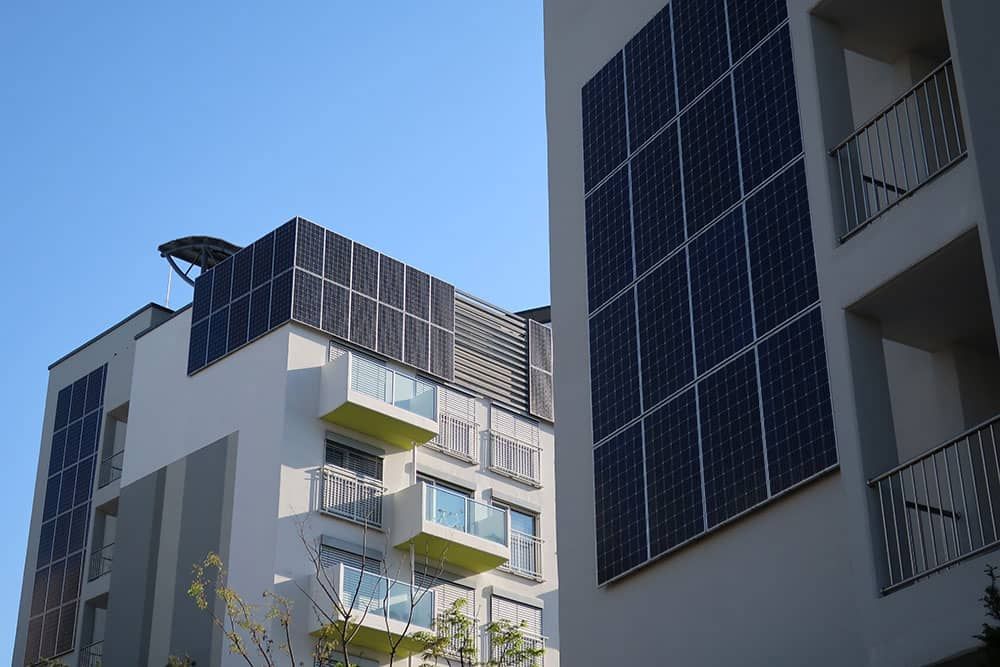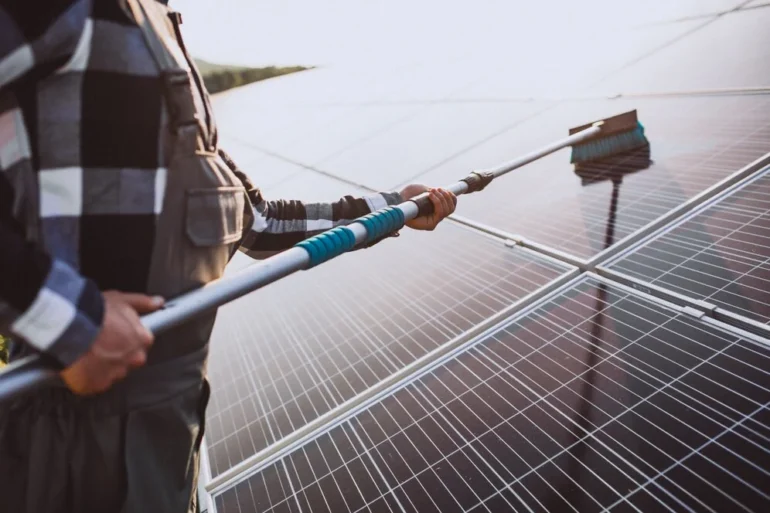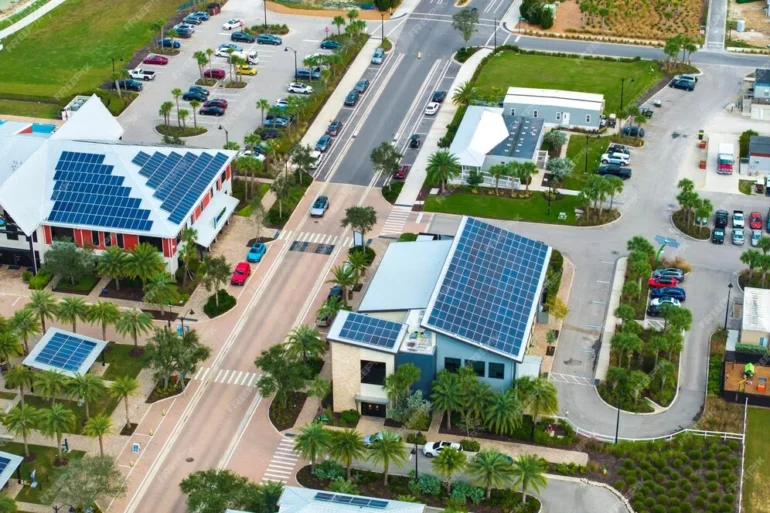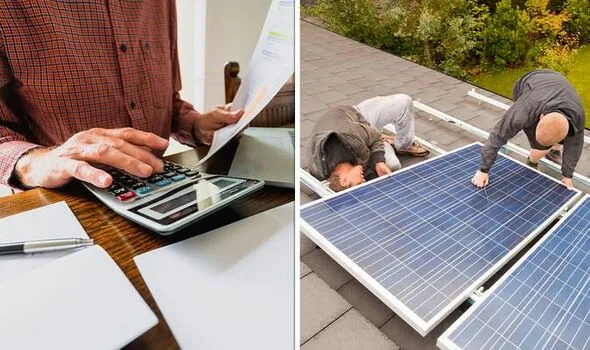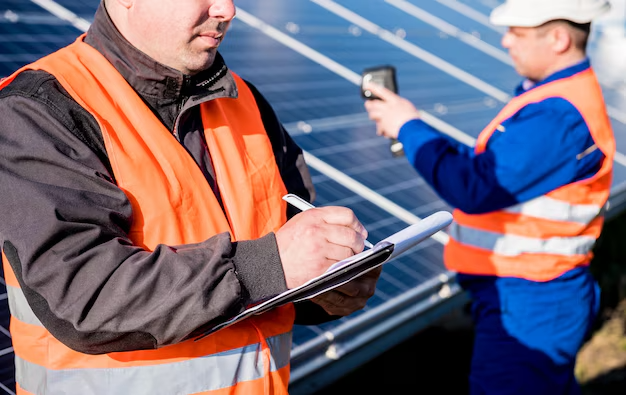If you live in an apartment in Australia, you probably think having rooftop solar is out of the question. It does not seem probable for you to put panels on the roof. So, is there a way for you to enjoy solar for apartments? Let’s talk about it in this blog.
Clean energy is the future, and we must start harnessing it now. But if you live in a city apartment, you may be among those who can never have access to solar power and its benefits. That’s unfortunate, especially with the continuous rise of power bills and electricity prices. More Australians are now searching for ways to be less reliant on the grid. And one of the best solutions is through a solar system installation.
However, it is not feasible for apartment dwellers to have solar because they cannot put solar panels and probably even an inverter due to the rules they have to abide by. But there’s always hope. If you’re among those who live in an apartment unit or rental property, you can now join the solar movement.
Solar Options for Apartment Renters
There are a few ways for apartment dwellers to gain access to solar power. However, they are not applicable to everyone. Before you think about which option to choose, consider the restrictions set by the landlord. There may also be issues concerning apartment location, orientation, size, and shape of the roof, blockages, and other factors.
With those considerations in mind, here are the top solutions if you seek to have solar installed for the apartment:
-
- Solar Garden A solar garden is a smaller version of a solar farm used by the industrial sector. It is an alternative model where you share solar power with other apartment dwellers. Solar gardens are not so similar to traditional installations, where a homeowner can buy several panels and connect the system directly to the grid to power their homes.In a solar garden arrangement, the solar array will be connected to the grid, as well. However, the network will receive all the energy generated instead of using the power for the apartment. How can this setup help you save? The savings come automatically because the energy from the panels will come as a rebate against the bill. The rebate is applied no matter where you live.This scheme will benefit those who cannot install panels and batteries, which include people who live in apartment units. The most attractive component of using a solar garden is that you can sell the panels onwards, so you are not tied to an investment. It is, therefore, perfect for those who plan to change residence in the future or even move to another country.
- Peer-to-Peer Energy Trading The uptake in battery storage is driving peer-to-peer trading of energy to a major revolution. Excess power from solar panels generated will either be wasted or sold back to the retailer in a traditional setting. But usually, the exchange does not seem fair. Now, new technology lets you sell excess solar energy to other people. It’s even used in tandem with blockchain technology through cryptocurrencies, such as Bitcoin, to ensure transparency in trading solar energy with neighbours.
- Common Solar Installation This approach consists of a dedicated metre where lights and other communal facilities operate. The power bills are paid through strata levies. This method works well for tall apartments with little roof space. The benefit here is that everyone in the property will equally benefit from the reduced bills. The capital expenditure will also be a lot smaller for those blocks that do not have air conditioners, lifts, or pools.
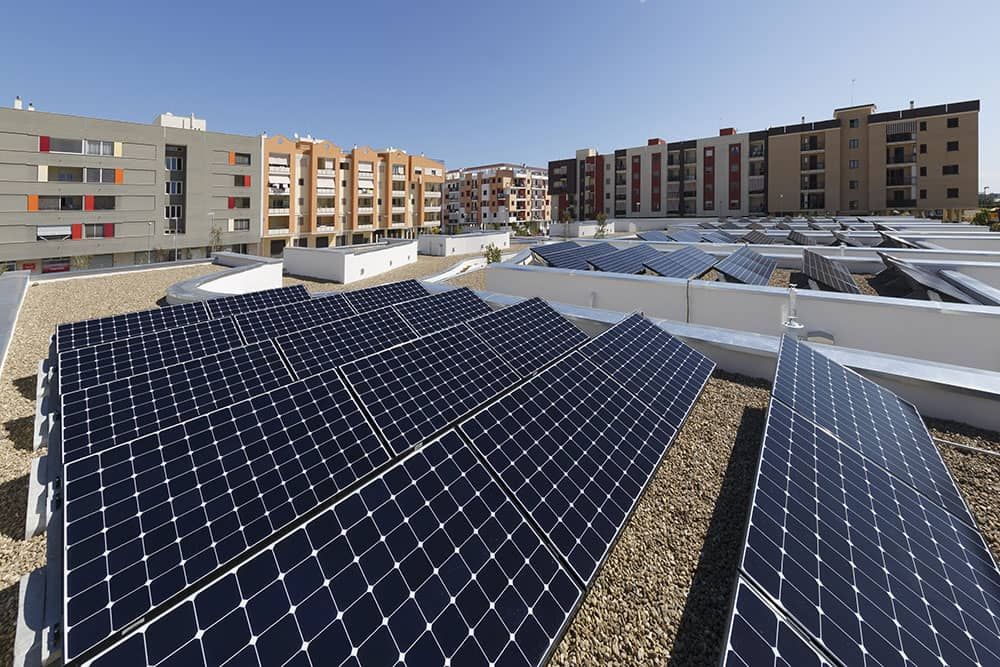
- Exclusive Use of Solar Sometimes, bills for common areas may already be small, so it may not make sense to use solar for the common areas. A good alternative is to install a solar system for the unit itself. Of course, this solution always depends on whether there is actually enough roof space for the panels. When you rent or purchase the unit, you don’t think about the roof of the property unless you already have a solar installation in mind.But let’s say that there is viable roof space, which means you can have solar installed. Most of the time, other unit owners will want the same thing, which means there should be enough space for everyone in the building to have solar panels on the roof. For this to work, units should be wired up to their individual metre. It’s efficient, especially because there are actual savings depending on how you use solar throughout the day.
What Landlords Can Do
If you are a landlord, you probably want to make sure that you get a return on investment if you decide to install solar for your apartment.
One way is to have an agreement with the tenant. You already know that even though the whole solar system packages have gone down in prices, they are still a hefty expense, especially for larger properties. You can choose to share the costs, as well as the benefits that come with solar installations.
For example, you can provide solar for the apartment units, but it means you have increased rental prices compared to other apartments in the area. It’s not a bad idea because your apartment may be the only one that promises solar power. Also, some tenants will overlook the added costs in exchange for the solar system benefit. If you increase the rent, it should be explicitly described in the contract why and how much the total price will be.
Another option is to use the pay-for-consumption approach. If your property has solar panels, you can turn them into additional profit by sharing energy with the renters. This method works exactly like peer-to-peer energy trading and exclusive solar use, as mentioned above, where each tenant has a solar monitoring metre. That way, they only pay for their solar consumption, which they will forward to you as the landlord.
Living in an apartment doesn’t mean you have to miss out on the benefits of solar energy. There are several options available for apartment dwellers to embrace solar power and reduce their carbon footprint. Here are some additional FAQs to help you understand the options for solar in apartments:
FAQs
- Can apartments benefit from solar energy?
Yes, apartments can benefit from solar energy by harnessing solar power to generate electricity. While the installation process may differ from standalone homes, there are options available for apartment dwellers to tap into solar energy.
- What are the options for solar energy in apartments?
In apartments, the most common options for solar energy are community solar programs, virtual net metering, and shared solar systems. These options allow multiple apartment units to collectively benefit from solar power generation.
- What is a community solar program?
A community solar program enables apartment residents to subscribe to a shared solar project located offsite. Participants receive credits on their electricity bills based on the amount of solar energy generated by their subscribed portion of the project.
- What is virtual net metering?
Virtual net metering allows apartment residents to receive credits for the solar energy generated by a shared solar system located on or near the apartment complex. The credits offset a portion of their electricity bills, reflecting their contribution to renewable energy generation.
- Can apartment residents install individual solar panels?
In some cases, apartment residents may have the option to install individual solar panels if there is available roof space or designated areas for solar installations. However, this option depends on the apartment building’s policies and feasibility.
- What factors should apartment residents consider for solar installations?
Apartment residents interested in solar installations should consider factors such as roof orientation, available space, shading issues, and building regulations. Consulting with solar energy professionals can provide guidance on the technical and logistical aspects of solar installations in apartments.
- Are there any financial incentives for solar in apartments?
Financial incentives for solar in apartments may vary depending on the region and local policies. It’s advisable to research available incentives such as tax credits, grants, or rebates that may apply to apartment solar installations. Consulting with local authorities and solar professionals can provide more information on applicable incentives.
- Can renters benefit from solar energy in apartments?
Yes, renters in apartments can benefit from solar energy through participation in community solar programs or by taking advantage of virtual net metering. These options allow renters to access the benefits of solar power generation without owning the property.
- Who is responsible for maintaining the solar system in apartments?
The responsibility for maintaining the solar system in apartments depends on the arrangement between the apartment owner, the solar system provider, and the residents. It’s important to clarify maintenance responsibilities and obligations in the lease agreement or contractual agreements.
- Can solar energy reduce electricity bills for apartment residents?
Yes, solar energy can help reduce electricity bills for apartment residents participating in community solar programs or virtual net metering. By offsetting a portion of their electricity consumption with solar credits, residents can potentially see savings on their electricity bills.
- Can apartment buildings have their own solar installations?
Yes, some apartment buildings have the potential to install solar panels on their rooftops or other available spaces. This approach requires coordination among building owners, tenants, and solar installation professionals to ensure feasibility and compliance with building regulations.
- Are there any portable solar solutions for apartment residents?
Portable solar solutions, such as solar-powered chargers or small-scale solar panels, can be an option for apartment residents who want to utilize solar energy for personal devices or small appliances. These portable solutions provide flexibility and convenience without the need for permanent installations.
While solar options for apartments may require unique considerations, there are viable solutions available that allow apartment residents to benefit from solar energy. Researching available programs, understanding apartment policies, and consulting with solar professionals can help determine the most suitable solar options for apartments and maximize the results.
